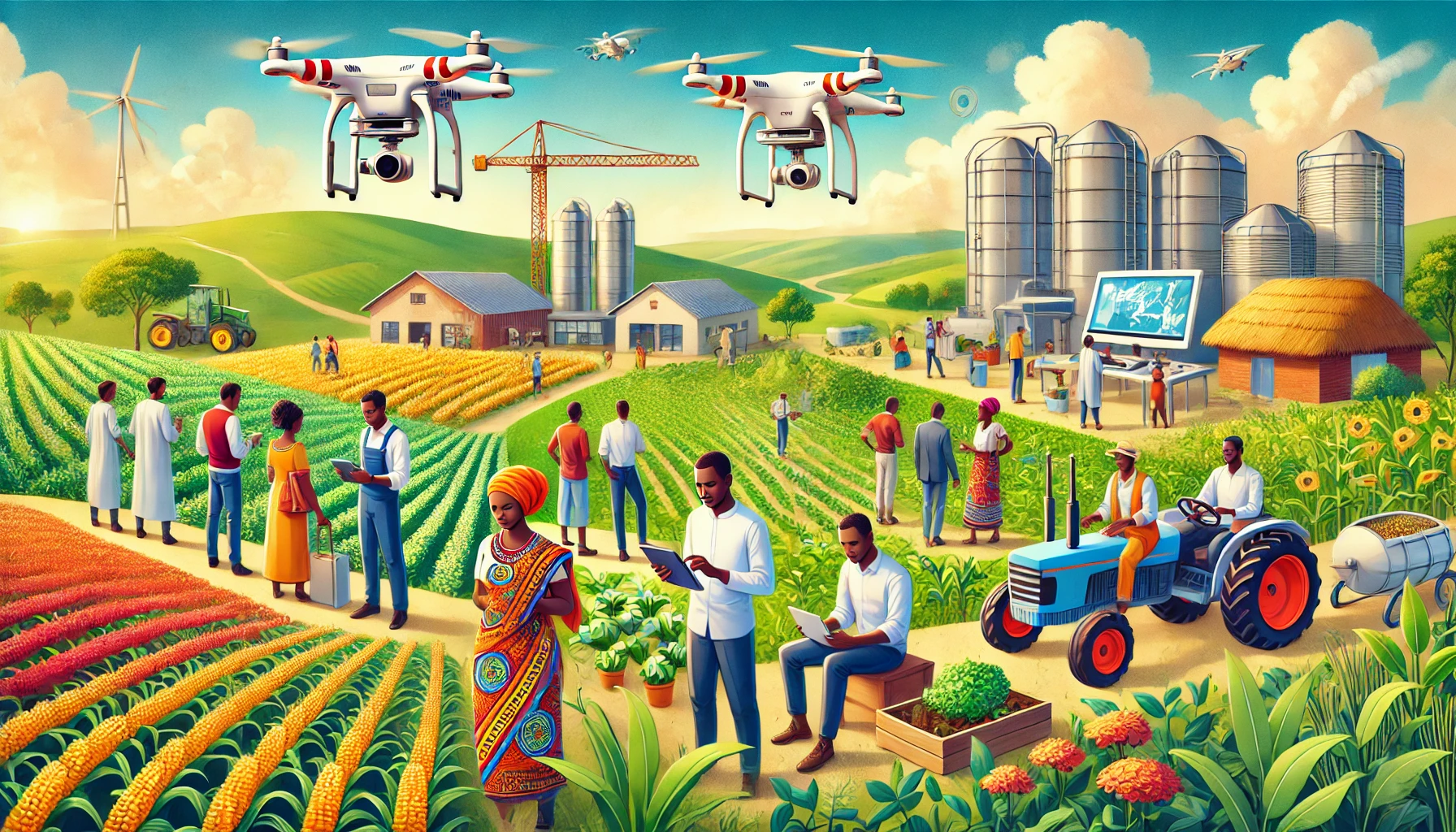Empowering Africa’s Future: HASTEN's Mission to Transform Agrifood Systems
The HASTEN Project by FAO aims to empower young African leaders to drive sustainable agrifood transformations, addressing hunger and food insecurity through innovative training, partnerships, and support for agripreneurship. This initiative targets systemic change by fostering inclusive, resilient, and climate-smart agrifood systems in Lesotho, Rwanda, and Sierra Leone.

The HASTEN Project, an initiative launched by the Food and Agriculture Organization (FAO) in collaboration with the governments of Lesotho, Rwanda, and Sierra Leone, is setting the stage for a transformation in agrifood systems in Africa, aimed specifically at fostering sustainable practices and accelerating the attainment of the Sustainable Development Goals (SDGs). Under the direction of FAO’s Regional Office for Africa, Subregional Offices for Eastern and West Africa, and FAO’s Country Offices in the participating nations, HASTEN leverages expertise from multiple sectors to empower the next generation of agrifood leaders across the continent. This ambitious project is a response to slow progress toward the SDGs, particularly SDG 2, which addresses hunger and food security, and the Malabo Declaration's goals to end hunger and malnutrition across Africa. Since 2020, hunger has surged, with an estimated 282 million Africans currently undernourished, marking an increase of 57 million in recent years, exacerbated by economic challenges, climate volatility, and the lingering impacts of the COVID-19 pandemic. The HASTEN Project proposes an innovative, youth-centered approach that moves away from incremental improvements, instead driving a comprehensive shift in agrifood systems by cultivating transdisciplinary skills, building capacity for systems thinking, and facilitating partnerships across sectors.
Empowering Future Leaders with Systems Thinking
The project focuses on training young professionals from the public, private, and academic sectors to adopt a holistic approach to agrifood systems, emphasizing the importance of SDG interlinkages and understanding the synergies and trade-offs required for sustainable change. HASTEN’s objectives go beyond data collection, which often dominates current SDG initiatives, by addressing the systemic gaps in governance, societal behavior, and political economics that prevent these initiatives from being effectively implemented. Recognizing that data alone does not translate into action, HASTEN prioritizes capacity-building, particularly among youth, to navigate complex, multilevel governance structures and tackle cross-cutting themes like inclusion, gender equality, youth empowerment, and environmental sustainability. The project is specifically designed to address these areas, equipping young professionals with the skills to analyze, plan, and implement impactful policies and projects that support sustainable development across Lesotho, Rwanda, and Sierra Leone. This initiative was instigated at the request of these countries, whose governments see the need to invest in future leaders to combat the region’s escalating food security crisis and bring about resilient, inclusive agricultural economies.
Bridging Knowledge Gaps through Targeted Training and Global Exchanges
HASTEN’s activities include workshops and enterprise support programs that promote systems thinking among young agrifood professionals. By conducting a detailed capacity gap analysis that disaggregates data by sex, age, and stakeholder roles within the agrifood system, the project identifies the specific needs of each participant demographic. This information is then used to tailor training programs and peer-learning opportunities that help young professionals understand the complex dynamics of agrifood systems transformation and empower them to contribute effectively. In addition to local training sessions, participants are given the opportunity to engage in foreign exchange visits, allowing them to observe and learn from successful agrifood practices in other countries. This exchange of knowledge encourages innovation and helps participants adapt successful methods to their own contexts, fostering a generation of agrifood leaders who can navigate the multifaceted challenges of sustainable development.
Promoting Collaborative Learning for Change
Through these initiatives, HASTEN supports peer learning between public and private sector actors, encouraging them to share insights and strategies that facilitate changes in institutional processes and mindsets. Policy briefs developed in collaboration with national workshops will address key thematic issues, offering actionable insights that stakeholders can implement to promote efficient and equitable agrifood systems. The project also aims to boost the private sector’s role in sustainable agrifood systems, supporting young entrepreneurs in developing sustainable business practices. By fostering a supportive ecosystem for agrifood small and medium-sized enterprises (SMEs), HASTEN empowers young entrepreneurs to scale up their agripreneurship ventures, aligning them with SDG targets. This support is particularly focused on creating inclusive, climate-smart, resilient, and digitalized value chains, ensuring that agrifood SMEs can thrive in a rapidly changing market.
Building Cross-Sector Partnerships for Agrifood Progress
A core aspect of HASTEN’s strategy is to encourage collaboration among national governments, international investors, academia, research institutes, and youth entrepreneurs. These partnerships enable HASTEN to mobilize resources, technology, expertise, and knowledge-sharing networks that strengthen youth enterprises in the agrifood sector. By creating an enabling environment, HASTEN hopes to foster a new generation of leaders equipped to tackle Africa’s most pressing agrifood challenges with sustainable, scalable solutions. Business incubation initiatives are also a crucial part of the project, offering young entrepreneurs coaching, mentoring, and preparation for pitching their ideas to potential investors. Through these programs, HASTEN aims to foster eco-inclusive, socially responsible agrifood businesses that can contribute to food security and economic development across the region.
Empowering Small Enterprises for Sustainable Development
In addition to supporting entrepreneurship, the project will provide targeted assistance to agrifood SMEs, helping them adopt innovative practices that contribute to sustainable development. By enhancing business models and scaling agripreneurship, HASTEN aims to integrate SDG principles into agrifood value chains, which will improve productivity, foster climate resilience, and promote sustainable land and resource use. Ultimately, HASTEN’s goal is to catalyze systemic change by enhancing the competencies of young leaders who will champion sustainable agrifood systems transformation across Lesotho, Rwanda, and Sierra Leone. With its focus on creating effective, inclusive, and accountable institutions, HASTEN aligns closely with both regional priorities and the overarching goals of the 2030 Agenda for Sustainable Development, marking a significant step forward in the battle against hunger and poverty in Africa.
- FIRST PUBLISHED IN:
- Devdiscourse










